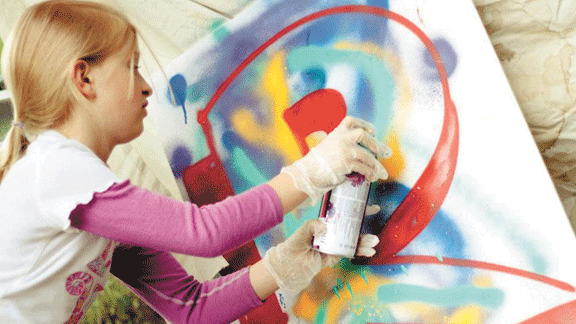School of Rebellion returns

Last year I was lucky enough to be involved in the School of Rebellion at the Marxism conference in Melbourne.
My favourite moment came when I was discussing the differences between short and long term happiness with a group of children no older than seven years old.
We decided that shoes brought us short term happiness – as did cars. But the more we talked the more it became obvious that in this society, true long term happiness isn’t achievable. When I asked if money bought happiness I was laughed at. When I proceeded to ask if money bought you friends the children laughed even harder. I don’t think I could have asked for a better outcome.
A child’s earliest experiences of the capitalist system occur when they enter their first classroom. They are told what to wear, when to speak, when they can and cannot eat, they are expected to seek permission to use the toilet and have no control over what learning takes place throughout the day.
A child’s relationship with their teacher is somewhat similar to the relationship that a worker shares with their boss.
A small minority of children are lucky enough to have a different schooling experience. They may be lucky enough to go to a school that emphasises inquiry learning and student agency.
If children are born into a family of the right class background they may also have get to participate in extra curricula activities and tutoring.
Unfortunately, for a vast majority of children, schooling is a process of disengagement and discipline designed to get them ready for the workforce.
“The school system is one of several institutions which serve to perpetuate [a] structure of privilege. Education is relatively powerless to correct economic inequality … but rather reflects the structure of privilege in society at large”, write economists Samuel Bowles and Herbert Gintis.
However, some students (with a nudge from their families or on the odd occasion a rebel teacher) discover that true learning isn’t just about tests and rote learning.
Learning is about questioning common assumptions, not following instructions. It’s about active thinking and discovery, rather than regurgitating imparted facts.
Sometimes students choose to rebel instead of toeing the line, whether it be against uniforms, mandatory homework or the lack of funding for essential student services.
Rebellion against institutions that stifle human creativity should be encouraged.
In that spirit, the School of Rebellion will be returning to this year’s Marxism conference in Melbourne with the hope of invigorating young with the spirit of learning and rebellion.
The School of Rebellion encourages children to take control of their learning. It is a school like no other, which supports children and young people to discover the connections between knowledge, learning, social justice and democracy.
The School of Rebellion’s philosophy centres on solidarity and aims to provide an environment in which children feel comfortable to express their creativity and political opinions, challenge authority and conformity and, above all, discover that real learning takes place outside of the school walls.
This year, the School of Rebellion will be running a number of workshops exploring philosophy, journalism, unionism, performing arts and First Nations culture.
[The School of Rebellion will be returning to this year’s Marxism 2014 conference, to be held over the Easter weekend]